New defense minister Bennett says Israel could continue to eliminate terror chiefs; Likud ministers threaten to intensify Gaza strikes if rockets continue
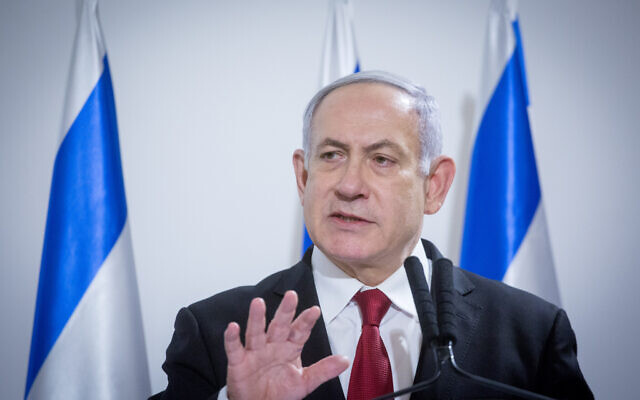
Prime Minister Benjamin Netanyahu on Wednesday morning issued a warning to terror groups in the Gaza Strip following a day of intense fighting with Palestinian Islamic Jihad, as did Defense Minister Naftali Bennett in his first public remarks since taking up the post a day earlier.
“We are continuing to hit Islamic Jihad after eliminating its senior commander in the Strip,” Netanyahu told a special cabinet meeting, referring to the targeted killing of Baha Abu al-Ata, which sparked the escalation.
“He was responsible for most of the terror attacks emanating from the Gaza Strip in the last year and he was planning to carry out more attacks in the next few days,” added Netanyahu. His comments were punctuated by fresh rocket alarms from the Strip.
At least 250 rockets have been launched since Tuesday morning at Israeli communities, resuming Wednesday morning after a brief respite.
“It would be better for Islamic Jihad to understand that now; I believe the message is starting to get across,” the premier added. “They understand we will continue to hit them with no mercy. We are determined to fight and protect ourselves. If they thought the barrages or hits would weaken us, they are wrong. They have one choice — either stop these attacks or suffer more and more blows. It’s their choice.
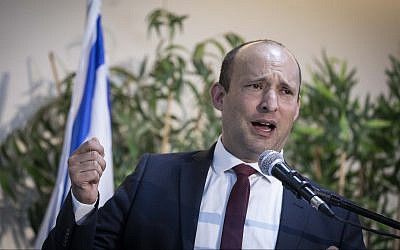
“It could take time,” he cautioned, calling on Israelis to remain vigilant. “We see that those who obey the Home Front Command’s instructions have a very high chance of not being harmed. The orders are clear, I ask that you continue to heed them.”Bennett, in his statement, said: “Yesterday morning, the IDF and security forces took vital action necessary for Israel’s security. Baha Abu al-Ata was a terrorist architect of Islamic Jihad who worked to terrorize Israeli citizens. He was eliminated. We did it yesterday, and will not hesitate to act in the future.
“This morning we send a clear message to all our enemies, wherever they may be: Whoever plans to hurt us during the day can never be sure that he will make it through the night,” he continued.
“You were and will remain in our crosshairs.”
In media interviews Wednesday morning, several Likud ministers threatened that Israel would expand its strikes if the frequent rocket launches continue and Hamas doesn’t take action against it.
Public Security Minister Gilad Erdan hailed Netanyahu’s rival, Blue and White chief Benny Gantz, for throwing his full support behind the operation in Gaza, saying he was “happy for that.”
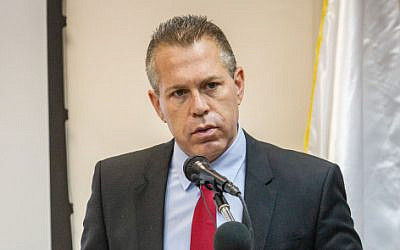
“The gaps aren’t big, but it’s something that demonstrates our need for unity,” he said of efforts to reach a governing coalition after September’s inconclusive elections. “If we reach the situation of a broad operation in Gaza, God forbid, if Hamas doesn’t get the message, of course it would be better for it to be with full consensus.”
Minister Ze’ev Elkin, also a member of the security cabinet, said: “Our mission for this round [of violence] has been accomplished,” referring to Abu al-Ata’s killing.
“We have definitely restored deterrence,” Elkin claimed, speaking to Channel 12. “One of the most senior people on their side is gone, and everyone understands we can reach anyone, anywhere. Whoever replaces Baha Abu al-Ata in the Islamic Jihad leadership will understand he has to change the policy, because if not he will quickly join [Abu al-Ata].”
Schools in southern Israel and as far away from Gaza as the city of Rehovot were ordered to remain closed Wednesday. This included the larger southern cities of Ashkelon, Ashdod, Beersheba and Yavne, meaning hundreds of thousands of students stayed home.
But the Home Front Command said late Tuesday night there were no security restrictions preventing schools and businesses in the Tel Aviv metropolitan area and Shfela region from operating normally, after classes were canceled and non-essential businesses were temporarily closed for the first time in Tel Aviv since the 1990 Gulf War.
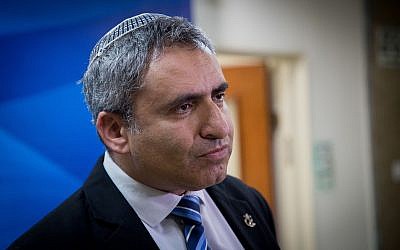
Elkin and Erdan both justified the decision to close schools and many workplaces in all cities and communities from the Gaza area to Tel Aviv, saying one of the scenarios presented initially by security officials predicted the option of many more rockets being launched at central Israel. Once that didn’t materialize, they said it was the correct choice to remove most of the emergency measures in central Israel on Wednesday.
Minister Yuval Steinitz told the Ynet news site that the option of a ground operation in the Strip was on the table, and that despite the immense price such an operation would involve, “one day we won’t have a choice but to do that.”
Since Tuesday, two people in Israel were wounded directly by rocket fire, both of them sustaining light injuries from shrapnel. In addition, 23 people were lightly hurt after falling while running to a bomb shelter and 23 others were taken to the hospital after suffering anxiety attacks and other “stress symptoms” due to the attacks, the Magen David Adom ambulance service said.
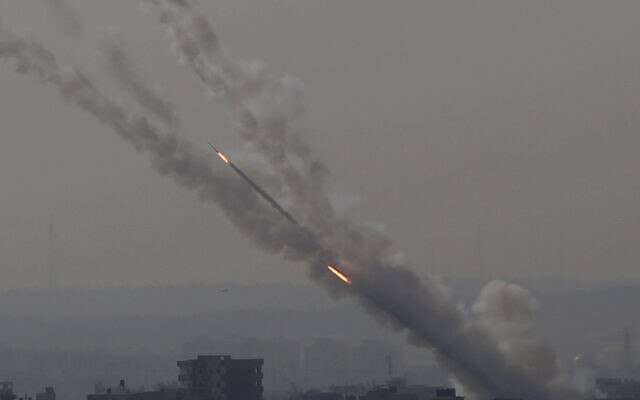
The IDF on Wednesday morning said it targeted several squads of terrorists who were trying to launch rockets at Israel. The Palestinians reported that some six people were killed and others were injured in Israeli airstrikes, bringing the death toll in Gaza since Tuesday morning to 18.
Eleven of those killed have been identified as members of the Palestinian Islamic Jihad and Fatah’s al-Aqsa Martyr’s Brigades by the terror groups.
Israel has notably been refraining from conducting strikes against the Hamas terror group, the de facto rulers of the Gaza Strip. In general, the IDF’s modus operandi has been to attack Hamas targets in response to any violence emanating from the Strip, as it considers the terror group to be the sovereign of the enclave.
IDF spokesperson Jonathan Conricus said Israel sent messages to Hamas, through unidentified third parties, urging the terror group to not take part in this round of fighting and that in return the IDF would not carry out strikes against it.
“We are monitoring [Hamas’s] activities and will conduct ourselves accordingly,” Conricus said Tuesday.
Egyptian officials, who spoke on condition of anonymity, said Cairo was attempting to deescalate tensions between Israel and the terror groups. The officials added that the Egyptian General Intelligence Service stepped up communications and “opened channels” with the US and the European Union.
Israel and Gaza have engaged in several sporadic rounds of violence over the last two years as the sides attempted to reach a long-term ceasefire.
As reported by The Times of Israel
